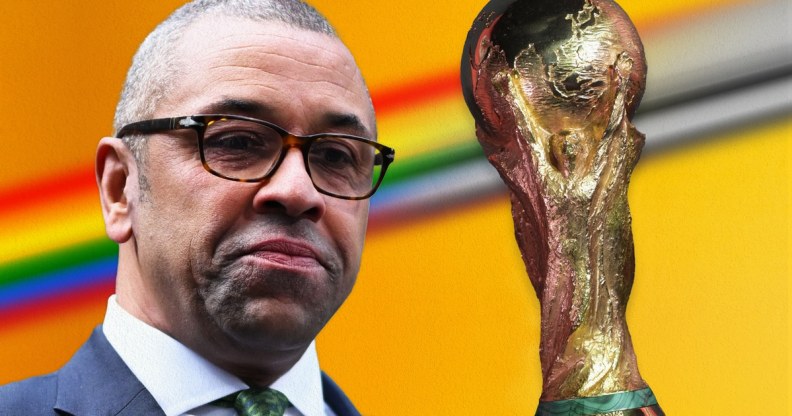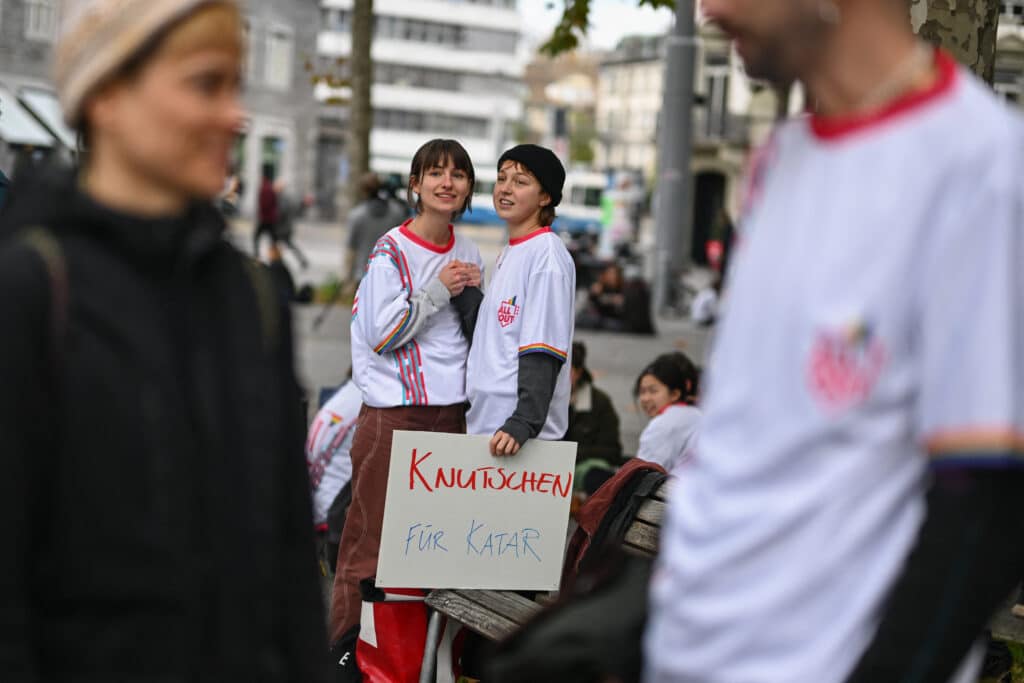Foreign secretary James Cleverly would ‘certainly consider’ going to Qatar World Cup if he was gay

James Cleverly’s remarks on how LGBTQ+ football fans should be ‘respectful’ in Qatar have been criticised by Labour MP Nadia Whittome. (Getty Images/Dan Kitwood/)
James Cleverly's remarks on how LGBTQ+ football fans should be 'respectful' in Qatar have been criticised by Labour MP Nadia Whittome. (Getty Images/Dan Kitwood/)
Foreign secretary James Cleverly has defended asking football fans travelling to the World Cup in Qatar to “compromise” with local laws.
He has also said he would “certainly consider” going to Qatar if he was LGBTQ+, despite its shocking human rights record.
Cleverly was heavily criticised in October for his comments advising people travelling to Qatar to be “respectful” of the host nation.
Homosexuality is illegal in Qatar and those convicted of same-sex activity can be imprisoned for up to seven years.
Earlier this month, gay Labour MP Luke Pollard called on the government to apologise for forcing LGBTQ+ people “back into the closet” if they plan to attend the 2022 World Cup.
And fellow Labour MP Nadia Whittome tweeted that LGBTQ+ people cannot “compromise” when it comes to safety.

Two people stand with a board reading in German “Smooching for Qatar”. (Photo by Fabrice COFFRINI / AFP) (Photo by FABRICE COFFRINI/AFP via Getty Images)
Appearing on ITV’s Good Morning Britain on Monday (14 November), Cleverly said the Foreign Office’s travel advice was “designed to make sure that people can be safe and happy”.
He did not give specific advice for LGBTQ+ people other than referring people to the Foreign Office website.
“I strongly urge people to read that,” he said.
Cleverly said he had “spoken at length with the Qatari authorities” about making sure fans were safe.
“It’s worth bearing in mind that the men and women don’t typically hold hands in Qatar and other conservative Muslim countries like Qatar,” he said.
“My strong advice is to look at the UK government’s travel advice.”
He said there was also a consular support team on the ground to facilitate “the safe enjoyment of the World Cup by all fans”.
Cleverly said if he were a gay man he “would certainly consider” going to Qatar for the World Cup.
‘Unwanted attention’
Advice on the Foreign Office website for those travelling to the host nation warns people to “be aware of your actions to ensure that they don’t offend”, including any intimacy between people in public.
Its separate LGBT advice page states travellers should find out about local laws and social attitudes towards homosexuality and gender identity.
“In some places, it may be best for all couples to avoid overt public displays of affection so as not to attract unwanted attention,” it states.

